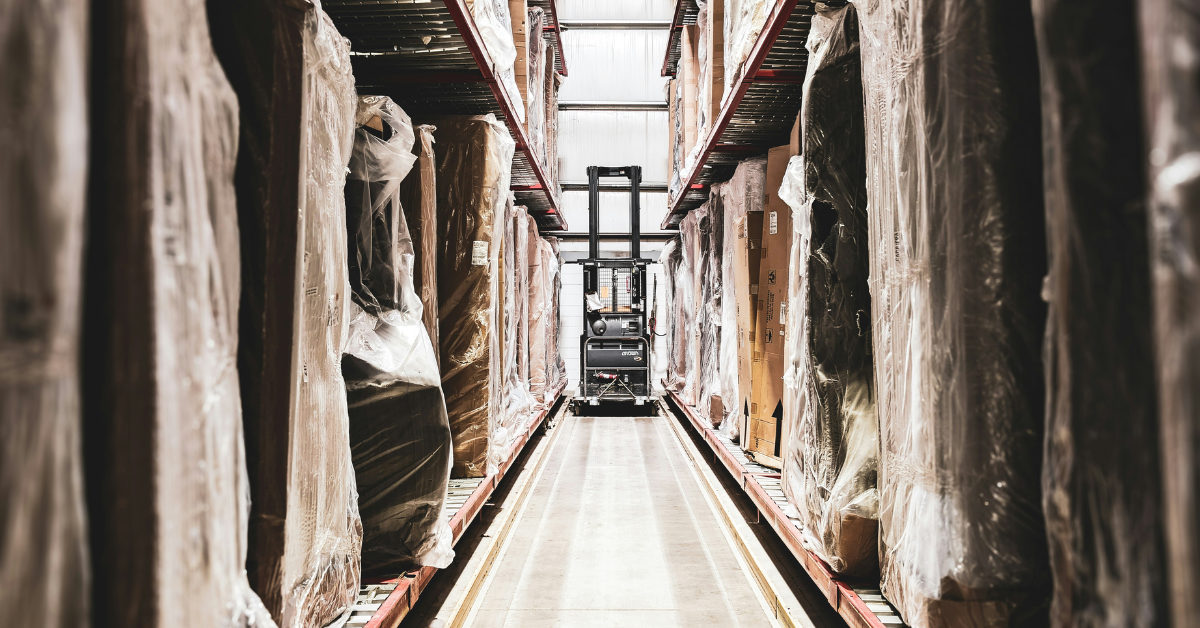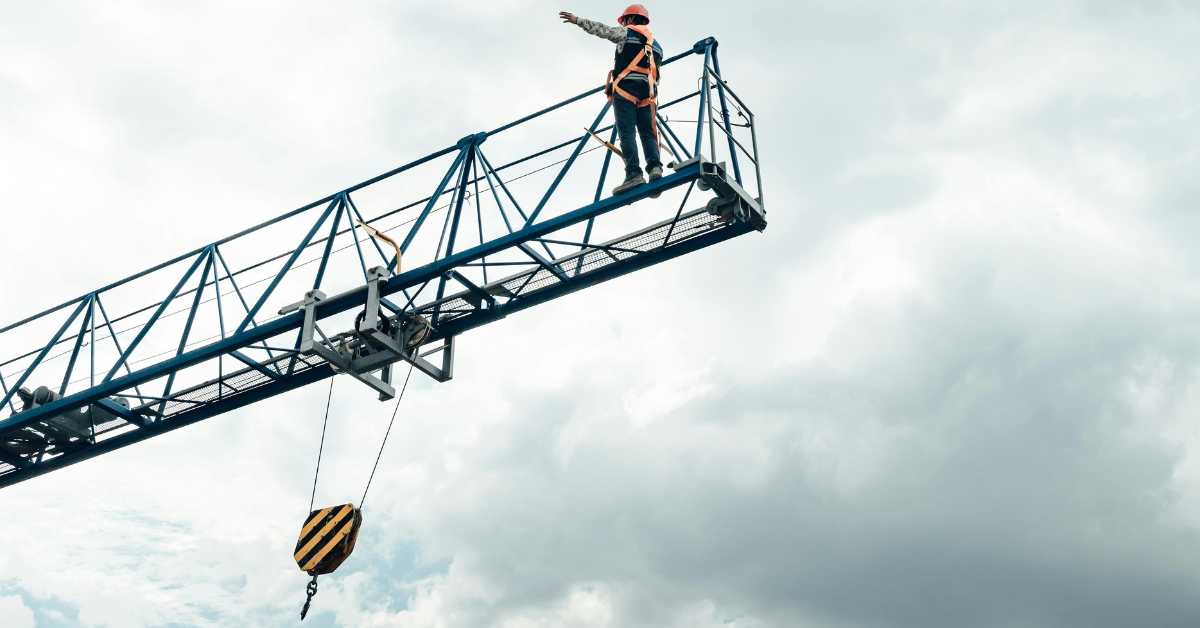The Evolution of First and Final Mile Logistics and Their Impact on Warehousing in Charlotte

Efficient logistics and warehousing solutions have become critical in today’s fast-paced global economy. Understanding the changes in first and final-mile logistics is essential for international suppliers looking to establish relationships with U.S. manufacturers. As manufacturers increasingly demand faster delivery and more readily available inventory, storing imported parts closer to U.S. manufacturing hubs has become crucial.
The shift toward localized warehousing is crucial for businesses in regions like LATAM, India, and China that supply U.S. manufacturers. Charlotte, North Carolina, stands out as a prime location for warehousing and logistics, offering an ideal gateway to the East Coast and beyond. Let’s explore how the “Amazon effect” has transformed the warehousing industry and why international suppliers should consider storing products in U.S. fulfillment centers.
The Rise of the “Amazon Effect”
Amazon’s innovative logistics approach has reshaped consumer expectations in e-commerce and various industrial sectors. With the introduction of fast delivery options like same-day and next-day shipping, Amazon has set a new standard for supply chain efficiency. U.S. manufacturers are now adopting these standards, leading to significant changes in how they manage their supply chains.
U.S. companies now expect faster delivery of parts and components from international suppliers, regardless of origin. This increasing demand for quick fulfillment has created new challenges for overseas manufacturers, pushing them to reassess their logistics strategies and explore localized warehousing solutions to better serve their U.S. industrial clients.
The Impact on First Mile Logistics
Increased Demand for Speed and Efficiency
The Amazon effect has directly impacted first-mile logistics, which involves moving goods from a supplier to a warehouse or fulfillment center. U.S. manufacturers increasingly ask international suppliers to accelerate their supply chains, often requiring faster transportation from factories to U.S.-based warehouses.
The demand for speed and efficiency has become crucial in securing contracts with U.S. manufacturers. Suppliers that can’t deliver quickly risk losing business to competitors who have already optimized their first-mile logistics.
Shift to Localized Warehouse Operations
One of the industry’s most significant shifts is the move towards localized warehousing. International suppliers are now recognizing the benefits of storing their imported parts closer to U.S. manufacturing hubs, reducing shipping times and ensuring a steady supply of inventory.
“A lot of U.S. manufacturers are buying finished parts from overseas, but they need to ensure they have the parts on hand. What they are saying to off-shore manufacturers is, ‘We’ll buy your parts, but we need at least a 3-month supply in the U.S.’,” Mark Fitzgerald, President of The Armstrong Company – Charlotte explains. “This means that supply chain managers for manufacturers in China, India, and LATAM now have to source warehousing and storage near their customers that can also support inventory management and final mile solutions.”
Role of Technology in First Mile Optimization
Technology plays a pivotal role in optimizing first-mile logistics. Tools such as IoT (Internet of Things), AI-powered forecasting, and real-time tracking systems allow international suppliers to monitor their shipments more effectively and predict potential delays. This level of visibility and control can help suppliers improve efficiency and better meet the demands of U.S. manufacturers.
Importance of Last-Mile Efficiency
Last-mile logistics, or the final delivery stage from the warehouse to the manufacturing facility, is as essential as first-mile logistics. U.S. manufacturers rely on the timely arrival of parts to keep production lines running smoothly. Any delay in the last mile can result in costly production stoppages, making it critical for international suppliers to ensure efficient and reliable last-mile delivery.
For international suppliers, understanding the significance of last-mile efficiency and building partnerships with logistics providers in key locations like Charlotte can significantly improve their ability to meet U.S. manufacturers’ expectations.
The “Amazon Effect” on Global Supply Chains
Challenges for Overseas Suppliers
The increasing expectations for faster and more reliable supply chains have presented unique challenges for overseas suppliers. U.S. manufacturers now expect their imported parts to be readily available, often requiring international suppliers to maintain inventory within the U.S. To stay competitive, suppliers from China, India, and LATAM must adapt to these evolving demands by investing in U.S. warehousing and logistics infrastructure.
The 3-Month Supply Mandate
Many U.S. manufacturers now require overseas suppliers to maintain a three-month supply of parts or products within the city to meet growing demands. This mandate ensures:
• Faster responses to market trends
• Reduced risk of stockouts
• Improved capacity to handle unexpected spikes in orders
• Greater overall supply chain resilience
However, the trend is shifting toward a six-month supply, providing an even stronger buffer against disruptions. Manufacturers can maintain uninterrupted production by storing more inventory in U.S. warehouses, while international suppliers offer increased reliability and strengthen their partnerships with U.S. companies.
Impact on Overseas Suppliers
Suppliers in China, India, and LATAM adapt to these new demands in several ways.
- Investing in U.S. warehousing: Many overseas suppliers are leasing space in critical logistics hubs like Charlotte, NC. This investment in the U.S. allows for greater flexibility in meeting unexpected spikes in demand and mitigating risks associated with international shipping delays.
- Improving inventory management: Many suppliers are adopting advanced systems that provide real-time insights into stock levels.
- Partnering with fulfillment centers: Many overseas suppliers collaborate with third-party logistics providers to manage their U.S.-based inventory. Suppliers can ensure their products are stored closer to their U.S. customers by leveraging fulfillment centers in strategic locations like Charlotte.
- Diversifying shipping methods: Overseas suppliers diversify their shipping strategies by using a mix of air, sea, and land transport to balance speed and cost.
- Embracing technology: Many are implementing real-time tracking systems and predictive analytics to anticipate demand more accurately and proactively adjust their supply chain.
By adapting to these changes, overseas suppliers are positioning themselves as valuable partners in the evolving landscape of global manufacturing logistics.
The Impact on Charlotte, NC
Charlotte as a Logistics Hub
Charlotte has transformed from its textile mill origins into a key logistics hub on the East Coast, now offering cutting-edge storage and warehousing solutions. Its rich industrial history has paved the way for the city’s current role in the supply chain, where international suppliers utilize Charlotte’s warehousing services to store imported parts for U.S. manufacturers.
Charlotte’s central location provides easy access to major transportation networks, including interstate highways, rail systems, and nearby ports, making it an ideal destination for companies seeking efficient storage solutions.
Increased Demand for Storage Space
International suppliers from LATAM, India, and China are increasingly securing warehouse space in Charlotte to meet the needs of U.S. manufacturers. By storing their products in a well-connected facility, these suppliers can shorten lead times and minimize the risks associated with long-distance shipping.
With its robust logistics infrastructure and competitive real estate options, Charlotte is becoming the go-to location for companies looking to optimize their U.S. warehousing services and logistics operations.
Final Mile Solutions in Charlotte
In addition to its first-mile logistics advantages, Charlotte offers a range of last-mile logistics providers specializing in delivering products from warehouses to manufacturing facilities. South Charlotte, in particular, stands out as a prime choice for businesses seeking reliable storage solutions, thanks to its unique blend of thriving business environments, well-planned neighborhoods, and strategic location.
The area’s logistics expertise ensures that international suppliers can support the entire supply chain, from initial storage to final delivery, helping U.S. manufacturers run their production lines efficiently. With seamless connections between storage facilities and final-mile delivery providers, South Charlotte is pivotal in ensuring timely and efficient operations.
Broader Implications for the Logistics Industry
The Future of Warehousing
The warehousing industry is evolving rapidly, and international suppliers must keep up with the latest trends to stay competitive. As demand for localized warehousing is experiencing rapid growth, inventory management, fulfillment centers, and automation will become increasingly crucial for suppliers looking to maintain a reliable and efficient supply chain.
The Role of AI in Automation
Technologies like automated inventory management systems and AI-driven route optimization help suppliers boost efficiency and reduce costs. International suppliers that invest in these innovations will be better prepared to meet the demands of U.S. manufacturers and navigate the complexities of modern supply chains.
Sustainability Considerations
Sustainability is becoming a key consideration for many U.S. manufacturers, and international suppliers must consider this when planning their logistics strategies. By adopting eco-friendly practices, such as using green packaging materials and optimizing transportation routes, suppliers can appeal to manufacturers prioritizing sustainability in their supply chains.
Looking Ahead
The future of warehousing and logistics looks bright, with increasing demand for localized storage, advanced technologies, and sustainable solutions. For international suppliers, particularly from LATAM, India, and China, securing a warehouse facility in a strategic location like Charlotte will be crucial for meeting the evolving needs of U.S. manufacturers. Suppliers can offer the reliability and speed needed in today’s competitive environment by storing approximately six months’ worth of products in U.S. fulfillment centers. As supply chain expectations rise, those who invest in localized warehousing and advanced logistics will be well-positioned for success in the U.S. market.
Positioning your products closer to your customers is key to streamlining your supply chain and ensuring a consistent supply of parts to U.S. manufacturers. At Armstrong, we offer tailored warehousing and logistics solutions in Charlotte, NC, to help international suppliers stay competitive in the U.S.
With our expertise in inventory management, distribution centers, and final-mile logistics, we provide the space and support to store up to six months’ worth of products. Contact Armstrong today to learn how we can enhance your supply chain efficiency and meet the increasing demands of U.S. manufacturers!


